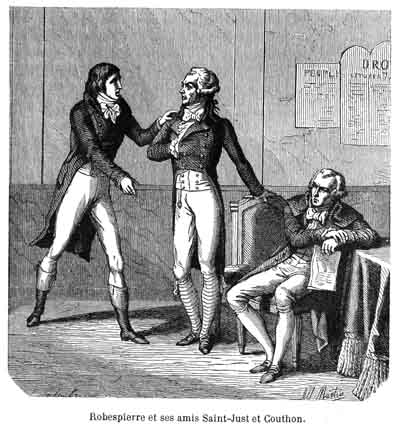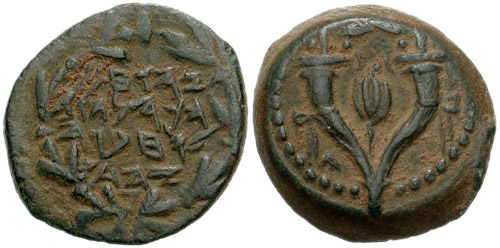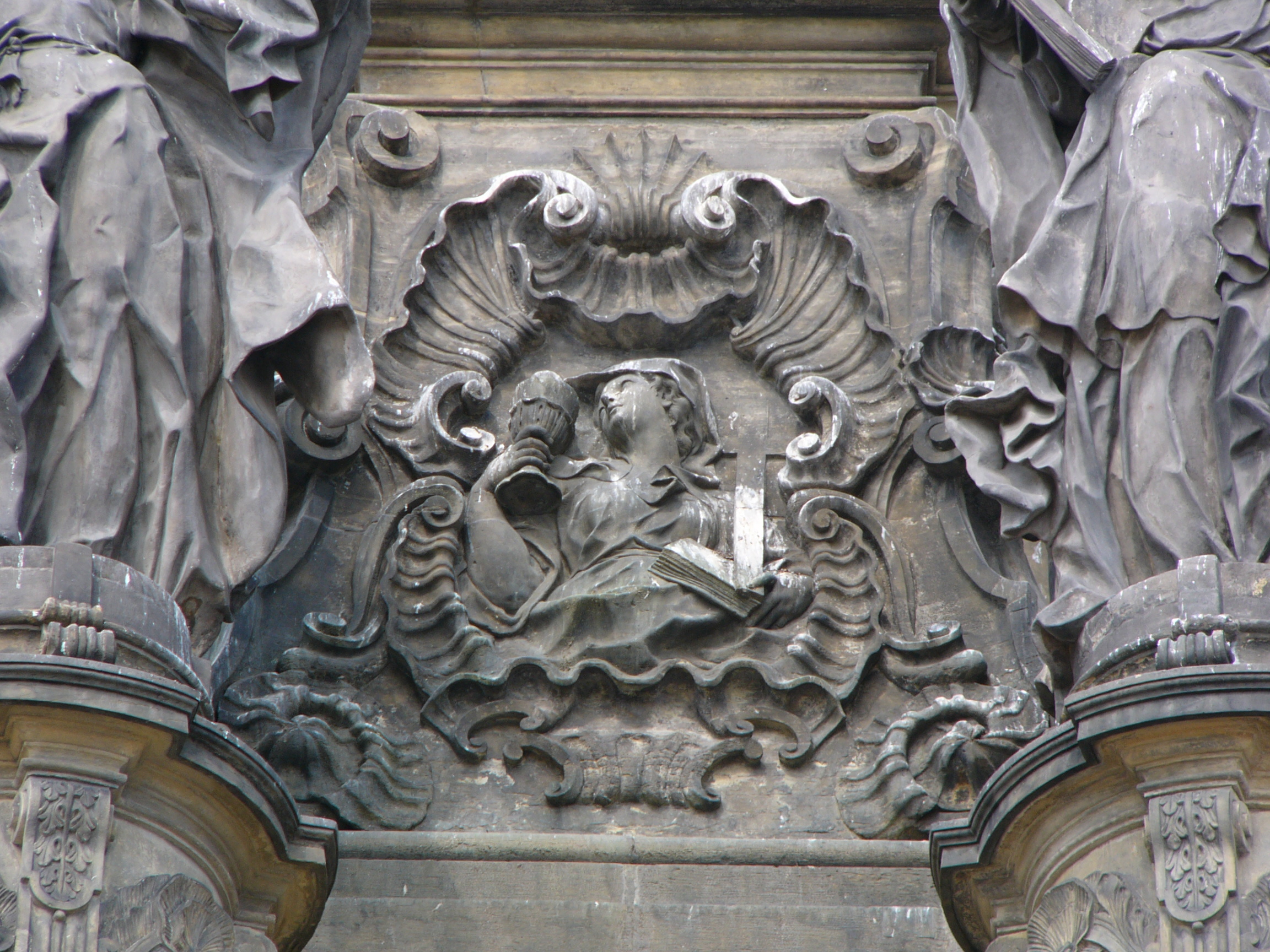|
Apostolic Age
Christianity in the 1st century covers the formative history of Christianity from the start of the ministry of Jesus (–29 AD) to the death of the last of the Twelve Apostles () and is thus also known as the Apostolic Age. Early Christianity developed out of the eschatological ministry of Jesus. Subsequent to Jesus' death, his earliest followers formed an apocalyptic messianic Jewish sect during the late Second Temple period of the 1st century. Initially believing that Jesus' resurrection was the start of the end time, their beliefs soon changed in the expected Second Coming of Jesus and the start of God's Kingdom at a later point in time. Paul the Apostle, a Pharisee Jew, who had persecuted the early Christians of the Roman Province of Judea, converted –36 and began to proselytize among the Gentiles. According to Paul, Gentile converts could be allowed exemption from Jewish commandments, arguing that all are justified by their faith in Jesus. This was part of a ... [...More Info...] [...Related Items...] OR: [Wikipedia] [Google] [Baidu] |
Jesus Washing Peter's Feet
Jesus (AD 30 or 33), also referred to as Jesus Christ, Jesus of Nazareth, and many Names and titles of Jesus in the New Testament, other names and titles, was a 1st-century Jewish preacher and religious leader. He is the Jesus in Christianity, central figure of Christianity, the Major religious groups, world's largest religion. Most Christians consider Jesus to be the Incarnation (Christianity), incarnation of God the Son and awaited Messiah#Christianity, messiah, or Christ (title), Christ, a descendant from the Davidic line that is prophesied in the Old Testament. Virtually all modern scholars of classical antiquity, antiquity agree that Historicity of Jesus, Jesus existed historically. Accounts of Life of Jesus, Jesus's life are contained in the Gospels, especially the four canonical Gospels in the New Testament. Since the Age of Enlightenment, Enlightenment, Quest for the historical Jesus, academic research has yielded various views on the historical reliability of t ... [...More Info...] [...Related Items...] OR: [Wikipedia] [Google] [Baidu] |
Judaea (Roman Province)
Judaea was a Roman province from 6 to 135 CE, which at its height encompassed the regions of Judea, Idumea, Peraea, Samaria, and Galilee, as well as parts of the coastal plain of the southern Levant. At its height, it encompassed much of the core territories of the former Kingdom of Judaea, which had been ruled by the Hasmonean and Herodian dynasties in previous decades. The name ''Judaea'' (like the similar ''Judea'') derives from the Iron Age Kingdom of Judah, which was centered in the region of Judea. Since the Roman Republic's conquest of Judaea in 63 BCE, which abolished the independent Hasmonean monarchy, Rome maintained a system of semi-autonomous vassalage in the region. After Hasmonean ruler Antigonus II Mattathias briefly regained the throne, he was overthrown by Herod, who was appointed King of the Jews by the Roman Senate and ruled Judaea until his death in 4 BCE. The province's formal incorporation into the Roman Empire was enacted by Augustus in 6 C ... [...More Info...] [...Related Items...] OR: [Wikipedia] [Google] [Baidu] |
Gospel
Gospel originally meant the Christianity, Christian message ("the gospel"), but in the second century Anno domino, AD the term (, from which the English word originated as a calque) came to be used also for the books in which the message was reported. In this sense a gospel can be defined as a loose-knit, episodic narrative of the words and deeds of Jesus, culminating in trial of Jesus, his trial and crucifixion of Jesus, death, and concluding with various reports of his Post-resurrection appearances of Jesus, post-resurrection appearances. The Gospels are commonly seen as literature that is based on oral traditions, Christian preaching, and Old Testament exegesis with the consensus being that they are a variation of Greco-Roman biography; similar to other ancient works such as Xenophon's Memorabilia (Xenophon), ''Memoirs of Socrates''. They are meant to convince people that Jesus was a charismatic miracle-working holy man, providing examples for readers to emulate. As such ... [...More Info...] [...Related Items...] OR: [Wikipedia] [Google] [Baidu] |
Dispersion Of The Apostles
The Christian Gospels of Mark and Matthew say that, after the Ascension of Jesus, his Apostles "went out and preached everywhere". This is described in Mark 16 verses 19 and 20, and Matthew 28 verses 19 and 20. According to a tradition mentioned by Eusebius, they dispersed to distinct parts of the world. In the Middle Ages, a liturgical feast of the Dispersion of the Apostles was celebrated to commemorate their missionary work and their founding the apostolic sees. This annual feast was held on 15 July and ranked as a major double. The Acts of the Apostles, the canonical sequel to the Gospel of Luke, portrays the dispersal as occurring a substantial time after the ascension, with the ministry staying in Jerusalem at first and spreading from there beginning with the conversion of the Ethiopian eunuch. The dispersion of the Apostles According to Book 3 of the ''Church History'' of Eusebius: Arthur Cushman McGiffert comments: Baronius considered that the occasion for ... [...More Info...] [...Related Items...] OR: [Wikipedia] [Google] [Baidu] |
Roman Empire
The Roman Empire ruled the Mediterranean and much of Europe, Western Asia and North Africa. The Roman people, Romans conquered most of this during the Roman Republic, Republic, and it was ruled by emperors following Octavian's assumption of effective sole rule in 27 BC. The Western Roman Empire, western empire collapsed in 476 AD, but the Byzantine Empire, eastern empire lasted until the fall of Constantinople in 1453. By 100 BC, the city of Rome had expanded its rule from the Italian peninsula to most of the Mediterranean Sea, Mediterranean and beyond. However, it was severely destabilised by List of Roman civil wars and revolts, civil wars and political conflicts, which culminated in the Wars of Augustus, victory of Octavian over Mark Antony and Cleopatra at the Battle of Actium in 31 BC, and the subsequent conquest of the Ptolemaic Kingdom in Egypt. In 27 BC, the Roman Senate granted Octavian overarching military power () and the new title of ''Augustus (title), Augustus'' ... [...More Info...] [...Related Items...] OR: [Wikipedia] [Google] [Baidu] |
Martyr
A martyr (, ''mártys'', 'witness' Word stem, stem , ''martyr-'') is someone who suffers persecution and death for advocating, renouncing, or refusing to renounce or advocate, a religious belief or other cause as demanded by an external party. In colloquial usage, the term can also refer to any person who suffers a significant consequence in protest or support of a cause. In the martyrdom narrative of the remembering community, this refusal to comply with the presented demands results in the punishment or execution of an individual by an oppressor. Accordingly, the status of the 'martyr' can be considered a posthumous title as a reward for those who are considered worthy of the concept of martyrdom by the living, regardless of any attempts by the deceased to control how they will be remembered in advance. Insofar, the martyr is a relational figure of a society's boundary work that is produced by collective memory. Originally applied only to those who suffered for their religious b ... [...More Info...] [...Related Items...] OR: [Wikipedia] [Google] [Baidu] |
Church Of Antioch
The Church of Antioch (, ; ) was the first of the five major churches of what later became the pentarchy in Christianity, with its primary seat in the ancient Greek city of Antioch (present-day Antakya, Turkey). The earliest record of the church of Antioch is given in Acts 11, stating that some "men of Cyprus and Cyrene, which, when they had come to Antioch, spoke to the Grecians, preaching the Lord Jesus ..and a great number believed, and turned to the Lord." Later, at the start of their missionary journeys, Paul the Apostle (also called Saul) and Barnabas preached in Antioch for a year, and followers of the church were called "Christians" for the first time.Smith's Bible Dictionary History Followers of Jesus as the messiah trace the origin of the term ''Christian'' to the church established at Antioch. The first church was founded by Jesus Christ, before Pentecost on a mountain top with the disciples while Christ was still alive. According to verses 19–26 of Acts 11, ... [...More Info...] [...Related Items...] OR: [Wikipedia] [Google] [Baidu] |
Pillars Of The Church
A triumvirate () or a triarchy is a political institution ruled or dominated by three individuals, known as triumvirs (). The arrangement can be formal or informal. Though the three leaders in a triumvirate are notionally equal, the actual distribution of power may vary. The term can also be used to describe a state with three different military leaders who all claim to be the sole leader. Informally, the term "triumvirate" may be used for any association of three. Under the influence of the Soviet Union, the term troika (Russian: for "group of three") may be used for "triumvirate". Pre-modern triumvirates Biblical In the Bible, triumvirates occurred at some notable events in both the Hebrew Bible (Old Testament) and New Testament. In the Book of Exodus, Moses, his brother Aaron and their nephew or brother-in-law, Hur (Bible), Hur, acted this way during the Battle of Refidim against the Amalekites. Later in Mishpatim, Exodus 24, when Moses was away on Mount Sinai, Aaron and H ... [...More Info...] [...Related Items...] OR: [Wikipedia] [Google] [Baidu] |
Roman Jerusalem
Jerusalem is one of the world's oldest cities, with a history spanning over 5,000 years. Its origins trace back to around 3000 BCE, with the first settlement near the Gihon Spring. The city is first mentioned in Egyptian execration texts around 2000 BCE as "Rusalimum." By the 17th century BCE, Jerusalem had developed into a fortified city under Canaanite rule, with massive walls protecting its water system. During the Late Bronze Age, Jerusalem became a vassal of Ancient Egypt, as documented in the Amarna letters. The city's importance grew during the Israelite period, which began around 1000 BCE when King David captured Jerusalem and made it the capital of the united Kingdom of Israel. David's son, Solomon, built the First Temple, establishing the city as a major religious center. Following the kingdom's split, Jerusalem became the capital of the Kingdom of Judah until it was captured by the Neo-Babylonian Empire in 586 BCE. The Babylonians destroyed the First Temple, leadi ... [...More Info...] [...Related Items...] OR: [Wikipedia] [Google] [Baidu] |
Faith In Christianity
Faith in Christianity is often discussed in terms of believing God in Christianity, God's promises, trusting in his faithfulness, and relying on God's character and faithfulness to act. Some denominations believe in the New Covenant and in the doctrine of Salvation in Christianity, salvation by justification by faith, faith alone (). According to most Christian traditions and denominations, Christian faith requires a belief in the resurrection of Jesus, and the Agony in the Garden which Jesus states is the plan of God the Father. Since the Protestant Reformation of the 16th century, the meaning of the term ''faith'' has been an object of major Christian theology, theological disagreement in Western Christianity. The differences have been largely overcome in the Joint Declaration on the Doctrine of Justification (1999). The precise understanding of the term "faith" differs among the Christian denomination, various Christian traditions. Despite these differences, Christians generally ... [...More Info...] [...Related Items...] OR: [Wikipedia] [Google] [Baidu] |
Justification (theology)
In Christian theology, justification is the event or process by which sinners are made or declared to be righteous in the sight of God. In the 21st century, there is now substantial agreement on justification by most Christian communions. The collective bodies of most of the largest Christian denominations, including Catholic, Lutheran, Reformed, Anglican and Methodist, have affirmed a 1999 Lutheran–Catholic Joint Declaration on the Doctrine of Justification that details this consensus, noting different distinctive emphases that individual communions consider essential to state. Historically, the difference in theories on the means of justification has often been the theological fault line that divided Roman Catholicism, Eastern Orthodox, Oriental Orthodox from the Lutheran, Anglican and Reformed traditions of Protestantism during the Reformation. Central issues of dispute have revolved around the nature or mechanism of the righteousness given by God when God justifies h ... [...More Info...] [...Related Items...] OR: [Wikipedia] [Google] [Baidu] |
Mitzvah
In its primary meaning, the Hebrew language, Hebrew word (; , ''mīṣvā'' , plural ''mīṣvōt'' ; "commandment") refers to a commandment Divine law, from God to be performed as a religious duty. Jewish law () in large part consists of discussion of these commandments. According to religious tradition, there are 613 commandments, 613 such commandments. In its secondary meaning, the word ''mitzvah'' refers to a deed performed in order to fulfill such a commandment. As such, the term ''mitzvah'' has also come to express an individual act of human kindness in keeping with the law. The expression includes a sense of heartfelt sentiment beyond mere legal duty, as "you shall love your neighbor as yourself" (Leviticus 19:18). For some ''mitzvot'', the purpose is specified in the Torah; though, the opinions of the Talmudic rabbis are divided between those who seek the Teleology, purpose of the ''mitzvot'' and those who do not question them. The former believe that if people were to ... [...More Info...] [...Related Items...] OR: [Wikipedia] [Google] [Baidu] |






